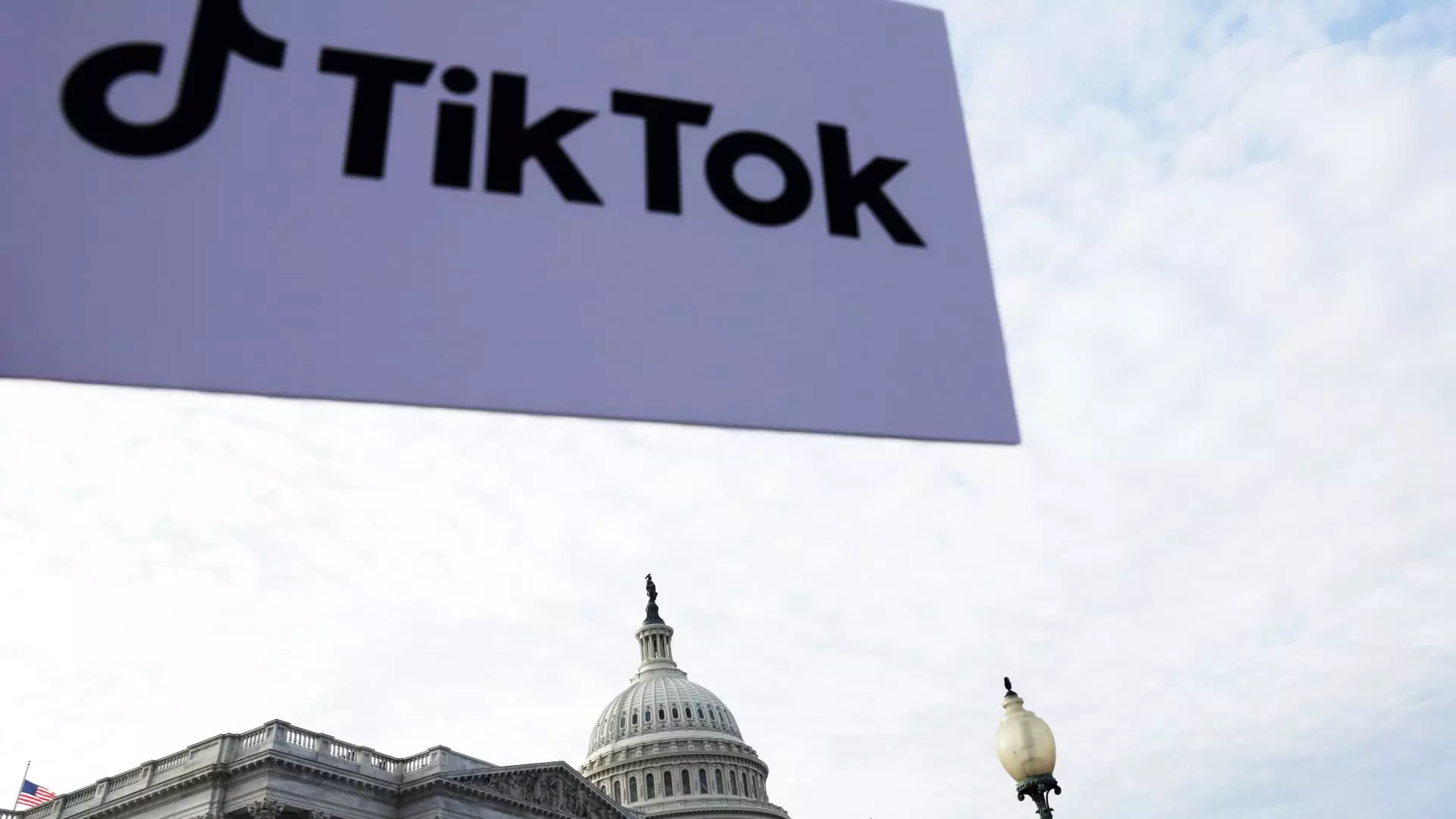The ongoing backlash against TikTok in the United States has escalated recently as members of the House Committee express mounting pressure on tech giants Apple and Google. Their demand? To prepare for compliance with a law that could potentially lead to a TikTok ban as early as next month. This situation highlights a confluence of regulatory scrutiny, corporate responsibility, and geopolitical tensions surrounding technology and its intersection with national security.
In a letter addressed to top executives, including Apple CEO Tim Cook and Alphabet CEO Sundar Pichai, representatives John Moolenaar (R-Mich.) and Raja Krishnamoorthi (D-Ill.) of the Select Committee on the Chinese Communist Party underscored their expectations from these companies as app store operators. The lawmakers brought to light the recent ruling from the U.S. Court of Appeals in Washington, D.C., which upheld legislation mandating that ByteDance—the parent company of TikTok—must divest from the app by January 19. Failure to comply with this order would result in legal obligations for Apple and Google to remove TikTok from their platforms within U.S. borders, reflecting a robust legislative intent to limit the app’s influence in light of national security concerns.
This action exemplifies how lawmakers are taking a proactive stance in addressing perceived threats posed by foreign-owned applications, particularly those with connections to China. The legislative framework places accountability on platforms that host these applications, establishing a clearer delineation of responsibility for American tech companies. The urgency displayed in the letters signals a commitment to ensuring that market players adhere to laws that safeguard U.S. interests.
Despite the court’s decision, TikTok has been vocal in its dissent, claiming that the law is unconstitutional and infringes upon the First Amendment rights of its considerable user base of 170 million Americans. The company’s assertion that regulatory actions could dismiss the voices of millions of users emphasizes a crucial debate in the larger context of digital rights and governmental authority.
In response to the court’s ruling, TikTok has moved swiftly to file an emergency injunction, seeking to halt the impending ban until the U.S. Supreme Court can review its case. The company warns about the potential ramifications of a ban, stating it could lead to a staggering $1.3 billion loss in sales and earnings for American small businesses and content creators. This figure illustrates the broader economic implications tied to social media platforms and their pivotal role in modern commerce—a reality that could prompt policymakers to reconsider unilateral approaches to regulation.
Adding another layer of complexity to the scenario is the influence of prominent investors in TikTok. Reports indicate that billionaire Jeff Yass, a significant investor in the Chinese app, has engaged with President-elect Donald Trump, who previously sought to enact a ban on TikTok during his administration. The intricate relationship between corporate interests and political motivations can shape regulatory outcomes, suggesting that the path forward for TikTok hinges not just on legality but also on lobbying efforts and economic considerations.
Given Yass’s substantial investments in ByteDance and other businesses linked to Trump’s ventures, the potential for lobbying and influencing regulatory frameworks could redefine the landscape of tech regulation in the United States. The perception of favoritism or conflicts of interest could sour public trust in the legislative process, thus reinforcing the need for transparency in these dealings.
As the clock ticks down toward the January deadline, the outcomes surrounding TikTok will have lasting implications for tech regulation, international relations, and the balance of power between governments, corporations, and users. The intersection of national security concerns and digital freedoms is more pronounced than ever, urging all stakeholders to reassess their roles and responsibilities in an increasingly interconnected world. This moment serves as a pivotal chapter in the evolving narrative of how nations manage and govern the digital frontier in pursuit of economic security, user rights, and geopolitical stability. As more legislative action unfolds, the landscape of social media and technology will inevitably continue to evolve, underscoring the importance of responsible governance in the digital age.


Leave a Reply